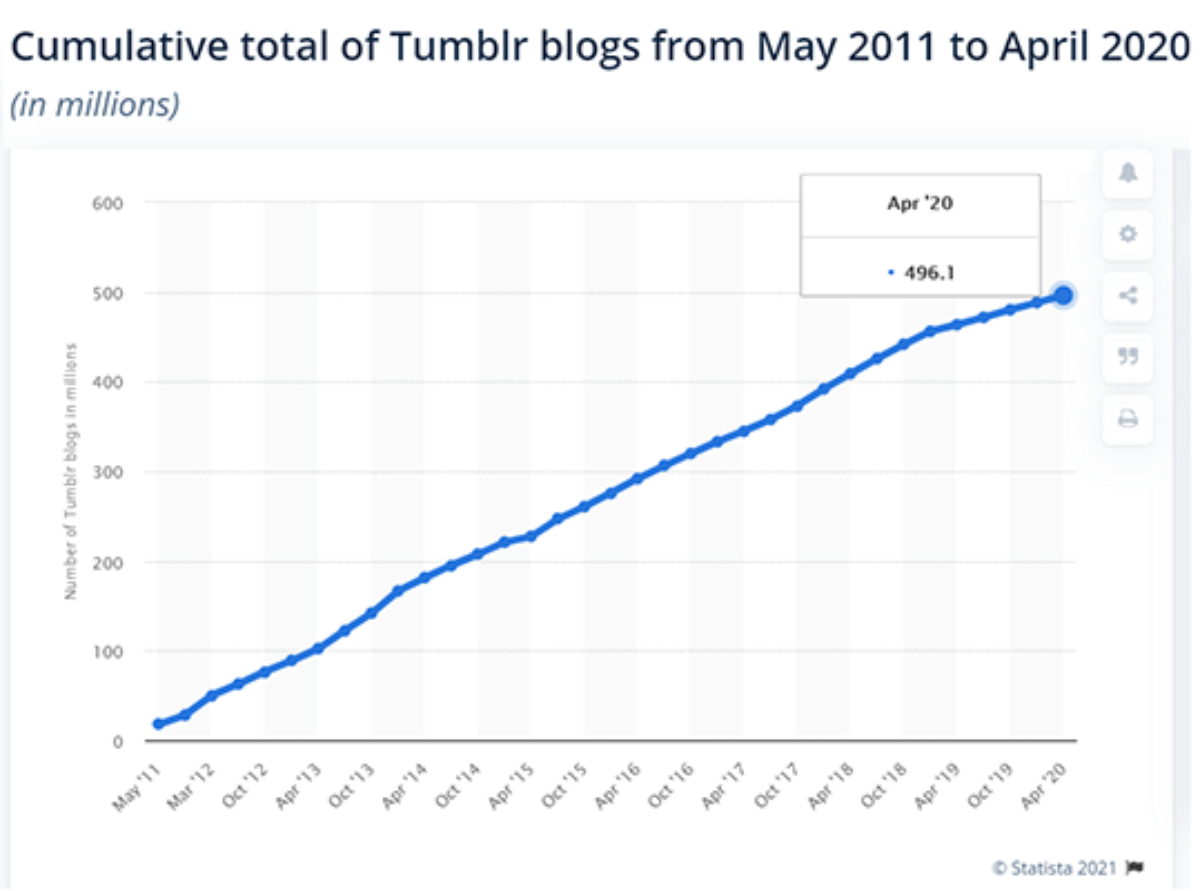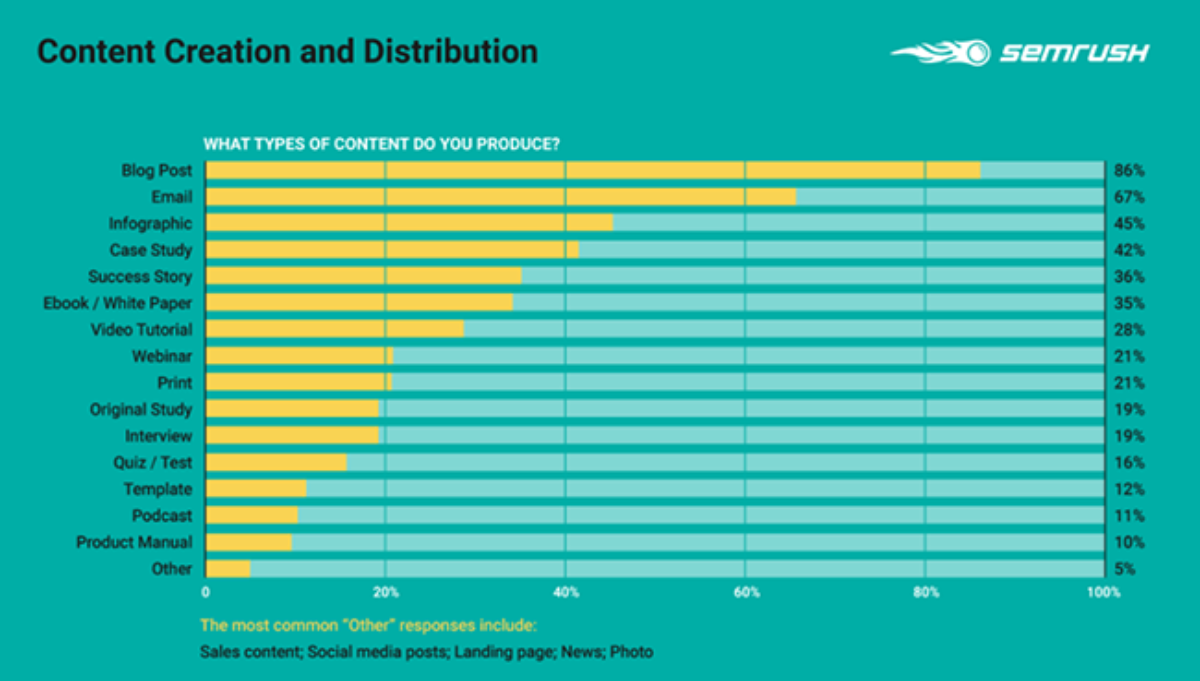Introduction: Why Blogging Matters in 2025
Blogging has been around for a long time. People said, “Blogging is dead.” But they were wrong. Today, blogging is more important than ever. It helps businesses grow. It educates people. And it can make you money.
This blog will share 35+ amazing blogging statistics for 2025. These numbers will show you why blogging is still powerful. They will also help you improve your blog. Let’s get started!
Key Blogging Statistics for 2025
1. There Are Over 500 Million Blogs Online

That’s right! More than 500 million blogs exist today. Platforms like WordPress, Blogger, and Tumblr host these blogs. Even though there are so many blogs, there is still room for new ones. You can succeed by picking the right niche and writing good content.
2. 77% of Internet Users Read Blogs
Most internet users read blogs regularly. They might not even know it! Blogs come in many forms. How-to guides, listicles, and reviews are just some examples. Blogging is still a great way to share information.
3. Top Blogs Make Over $1 Million a Year
Yes, it’s true. Some bloggers earn millions. The top 10% of bloggers earn at least $10,000 a year. Blogging can be a side hustle or a full-time job. But it requires hard work and strategy.
4. 55% of Bloggers Spend 6+ Hours on a Single Post
Blogging takes time. More than half of bloggers spend over six hours crafting one post. Quality matters more than speed, and readers can tell the difference.
5. Blogs Account for 38% of Internet Traffic
Blogs generate a significant share of global internet traffic. This shows how much people rely on blogs for information, entertainment, and learning.
6. 60% of Businesses Say Blogs Are Their Top Inbound Marketing Strategy
Blogs are a cost-effective way to attract and engage customers. They create trust and offer valuable information, which leads to more sales and conversions.
7. 80% of Bloggers Report Positive ROI
Blogging is an investment that pays off. Most bloggers say they see a return on their time and money spent on creating content.
Blogging and Marketing
8. 86% of Content Marketers Use Blogs

Blogging is the most popular tool for marketers. 86% of them use blogs to promote their business. Email marketing is the second most popular method, used by 67% of marketers.
9. Blogs Bring 67% More Leads
Businesses with blogs get 67% more leads than those without. Blogs help attract new customers. They provide useful content, which builds trust with readers.
10. Blogging Doubles Email Traffic
According to HubSpot, businesses that blog see twice as much email traffic. Blogs give you great content to share in newsletters. Readers love helpful and interesting articles.
11. 97% of Bloggers Promote Their Posts on Social Media
Social media is key for blog success. Most bloggers use platforms like Facebook, Instagram, and Twitter to share their posts. This helps them reach more people.
Blogging Platforms and Popular Trends
12. WordPress Is the Most Popular Platform
WordPress powers more than 40% of websites globally. It is the top choice for serious bloggers. Platforms like Wix and Squarespace are also growing in popularity, but WordPress remains unmatched for flexibility and features.
13. Visual Content Is on the Rise
Blogs with images and videos perform better. Readers spend more time on blogs with visuals. Adding an image every 75-100 words can double your blog’s shares.
14. Video Content Boosts Engagement
Pages with video content keep visitors 88% longer. Videos are a great way to explain complex topics or showcase products. Bloggers who use videos see better results.
15. “How-To” Posts Are the Most Popular
Many bloggers create “how-to” guides. These posts are easy to read and very helpful. They are also great for SEO, as people often search for “how to” do something.
SEO Insights for Blogging Success
16. Page-1 Rankings Get 95% of Traffic
Most people don’t look past the first page of search results. If your blog is not on page 1, it will struggle to get traffic. This is why SEO is so important.
17. The Best Post Length Is 2,100-2,400 Words
Longer posts rank higher on Google. They provide more value to readers. Aim for at least 2,000 words to improve your SEO.
18. Keyword Research Still Matters
83% of bloggers use keyword research. It helps them find topics that readers search for. Include 2-5 keywords in each post for better rankings.
19. Title Tags Are Crucial
Include your main keyword in the title. This helps search engines understand your content. A strong title also attracts more clicks.
Challenges in Blogging
20. Short Attention Spans
The average reader spends only 37 seconds on a blog post. Make your introduction catchy. Use headings and bullet points to keep readers interested.
21. Ad Blockers Are Common
27% of internet users block ads. If you rely on ads for income, this can be a challenge. Consider affiliate marketing or sponsored posts as alternatives.
22. Competition Is Tough
There are millions of blogs out there. Standing out is hard. Focus on creating unique, high-quality content to attract readers.
23. Keeping Content Fresh
Search engines and readers love fresh content. However, regularly updating your blog can be time-consuming. Scheduling updates and repurposing old content can help.
24. Rising Costs of Blogging Tools
The cost of premium tools like SEO software, hosting, and design platforms is increasing. Budgeting and choosing cost-effective tools are essential for long-term success.
25. Balancing Blogging with Other Tasks
For many, blogging is a side hustle. Balancing it with a full-time job or other responsibilities can be tough. Time management and prioritization are key.
26. Monetization Challenges
While monetizing a blog can be rewarding, it’s not always easy. Finding the right income streams, like affiliate marketing, ads, or products, requires trial and error.
Tips to Improve Your Blog
27. Write for Your Audience
Understand who your readers are. What do they want to learn? Create content that solves their problems or answers their questions.
28. Use Catchy Headlines
Your headline is the first thing people see. Make it interesting and clear. A good headline can increase clicks by 50% or more.
29. Optimize for Mobile Users
Many people read blogs on their phones. Make sure your blog looks great on all devices. Use responsive design and fast-loading images.
30. Update Old Posts
Old posts can still bring traffic. Update them with new information and keywords. This keeps your content relevant and improves SEO.
31. Promote on Multiple Channels
Don’t rely on just one platform. Share your blog on social media, email newsletters, and forums. This helps you reach a bigger audience.
32. Engage with Readers
Respond to comments and messages. Ask your readers questions. Engagement builds a loyal community around your blog.
33. Focus on Visual Content
Include images, infographics, and videos in your posts. Visuals break up text and make your blog more engaging.
34. Analyze Your Metrics
Use tools like Google Analytics to track your blog’s performance. Look at metrics like traffic, bounce rate, and time on page. Use this data to improve.
35. Network with Other Bloggers
Build relationships with other bloggers in your niche. Share each other’s content and collaborate on projects. Networking can help grow your audience.
36. Create Evergreen Content
Focus on topics that stay relevant over time. Evergreen content continues to attract readers long after it’s published.
37. Use Clear Call-to-Actions
Encourage readers to take action. Add call-to-actions like “Subscribe now,” “Download the guide,” or “Leave a comment.”
38. Experiment with Formats
Try different formats like listicles, interviews, and case studies. Experimenting keeps your content fresh and appealing.
Conclusion: Blogging in 2025
Blogging is not dead. It is evolving. With millions of blogs online, competition is tough, but success is possible. Focus on quality, understand your audience, and stay consistent. Blogging can still help you grow your business, share knowledge, and even earn money.
FAQs
1. Can I Still Make Money Blogging in 2025?
Yes! Blogging can be profitable. Use methods like affiliate marketing, sponsored posts, and selling products or services.
2. How Often Should I Post?
Consistency is key. Aim for 2-3 posts per week if possible. But focus on quality over quantity.
3. Do I Need to Be an SEO Expert?
No, but learning basic SEO can help. Focus on keywords, title tags, and quality content to improve your rankings.
4. Is Blogging Better Than Video Content?
Both have their place. Blogs are easier to produce and great for detailed topics. Videos are better for engagement and visual topics.
5. What Tools Can Help Me Blog Better?
Use tools like WordPress, Grammarly, and Canva. They can improve your writing, design, and overall efficiency.

I am a passionate digital marketer with a strong expertise in SEO and article writing. With years of experience in crafting compelling content and optimizing it for search engines, I help businesses enhance their online visibility and drive organic traffic. Whether it’s creating engaging blog posts or implementing effective SEO strategies, I am dedicated to delivering results that make an impact.
